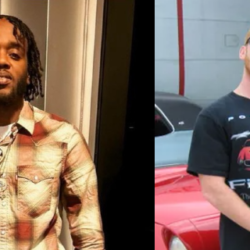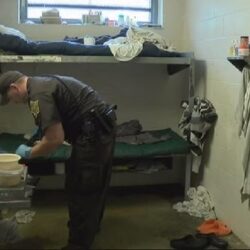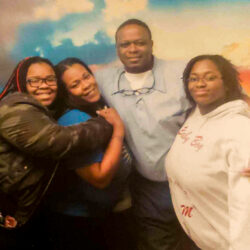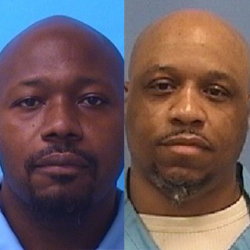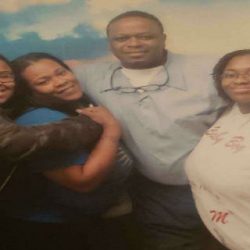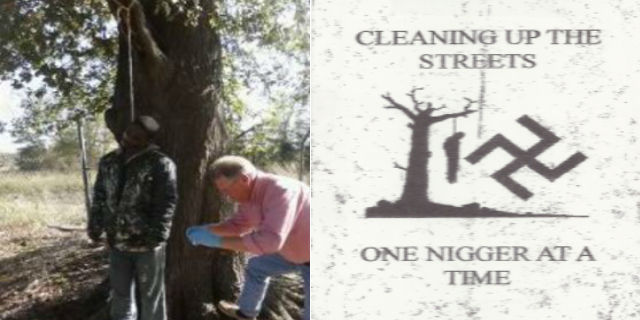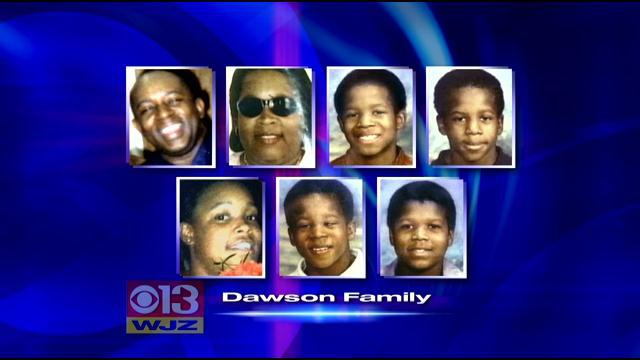Justice Delayed Is Justice Denied: Statements & Documents Show That Murder and Conspiracy Charges Against James Evans Stem From Contempt Of Cop Style Justice Part VI
Posted by David Adams on May 3rd, 2019
(Many of the facts contained in this article were derived from and are supported by the Appellate Brief of Larry Greer)
As in any criminal case, whether the process involves felony or misdemeanor crimes, the burden of proof always falls upon the prosecutor and the police officials who brought the criminal case before the courts. The law is suppose to deem all defendants innocent until proven guilty. I believe our justice system has proven countless times over, that the supposed perception of innocence perhaps, leaves much to be desired by those who find themselves standing before the courts in judgement with their lives in the balance.
Long before the gavel lands upon the courts final disposition of criminal cases, the people will have spoken in a trial where by the defendants were afforded a jury of their peers, and the entire process should have been an impartial adjudication governed by the laws of the respective jurisdiction for which the defendants have been tried. Those of us who hail from marginalized communities know all to well that such a process hasn’t exactly ever been fair to poor and indigenous people (of all races) within this country, who also know that the word of a police officer holds far more weight than any credible eyewitness a defendant could ever produce.
It wasn’t until the early 1990’s that the American public began to see the disparity and unfairness of policing in this country, when the shameful Rodney King beating case was unveiled for all to see, which depicted a culture of police violence that had long permeated our nation without scrutiny from the American public. Despite the emergence of surveillance footage of the incident being captured by a citizen, which clearly showed indisputable police brutality and excessive force, many of the officers involved were initially and shockingly acquitted of any wrong doing in the case.
Other high profile cases of police violence (excessive force), corruption, and police involved shootings of unarmed black men that have made national headlines, has placed bright lights and a microscope on police agencies around the country, which was born out of public fear, distrust, and the lack of transparency by police agencies when civilians come in contact with police officials. Also, depending upon the demographic of the communities that certain police agencies serve, the cops can do no wrong and often times a prosecutor in many of these jurisdictions can indict, prosecute, and convict a ham sandwich because the allegiance to the police is just that strong within certain sub-cultural settings in modern society.
“They harassed me so much that when ever they showed up at the door, I just started to asking them if they had a warrant, and when they said they didn’t, I just politely closed the door,” the source said.
Now in the instance case (People of Illinois vs. James Evans) over 20 years later, a mountain of information has been uncovered, with witnesses who are no longer afraid of alleged corrupt cops and the county prosecutor’s office, are now speaking up and helping formulate a classic horror story of injustice and showing exactly how ruthless, moralless, and lawless policing allegedly operated in some counties in the United States, such as Madison County Illinois during the early 1990’s.
Latosha White-Hamilton who was an alleged former co-defendant of James Evans, told TPC during a telephone interview that police officials and a prosecutor allegedly attempted to pressure her into making false statements that would implicate herself and Evans in a murder for hire conspiracy. White’s comments regarding police intimidation and coercion was not the first person who told TPC that former Alton Detective Bradley Wells, prosecutor Keith Jensen, and others used the same tactics to hold their personal criminal troubles against them, in an effort to pressure them into making false statements against James Evans.
One alleged defendant in the conspiracy to commit murder indictment, who understandably, doesn’t want to be mentioned on record, told a story which details how Detective Wells and former Detective John Lakin allegedly and repeatedly appeared at their residence harassing them to make false statements on record about Evans and a $10,000.00 murder for hire conspiracy they wanted them to falsely implicate Evans in. The story they (Wells and Lakin) allegedly wanted told was a complete fabrication, the source said. “They harassed me so much that when ever they showed up at the door, I just started asking them if they had a warrant, and when they said they didn’t, I just politely closed the door,” the source said. Then one day they in fact showed up at their residence with an actual arrest warrant which charged them with conspiracy to commit murder anyway. The source gave other statements also regarding the case, but those comments won’t be mentioned on record in fear that the information might compromise the sources identity which TPC has agreed not to disclose.
White and the unnamed source’s comments are not just intriguing because it relates to serious cases of violence and murder, its just that their individual perspectives contain similar details on how police and the county prosecutor’s office went about attempting to obtain damning statements against James Evans, and more importantly though, the comments made by them are not the only people who are now saying nearly the exact same thing. During the phone interview with White, she also pointed TPC in the direction of Mr. Larry Greer’s case, which prosecutors alleged was in fact connected to the Evans cases, and TPC has obtained a copy of Greer’s Appellate Briefing which petitions the courts to overturn his conviction in a murder case for which he received a 40 year sentence. Depending on who you believe, the brief outlines a disturbing tale where by Greer changes the comments he made to police so many times, that its disturbing and highly suspect the authorities even used his testimony during the Evans trial.
Also, when you read the Greer Appellate Brief you learn that Greer’s interaction with authorities were suspicious at the very least. It describes how Greer (an alleged known “crackhead”) gives a story pertaining to the murder of Brian Warr (an alleged co-defendant of James Evans in the Nekemar Pearson slaying) on September 12, 1998, and when the cops didn’t belief his version they initially charged him with obstructing justice, arrested him, and placed him in the county jail on those charges). Greer summonses the authorities back to the jail where he changes his statement, and implies that Evans might be involved buy saying that Warr and Evans were having problems, but didn’t identify Warr’s shooter even though he was seated right next to Warr in the vehicle when the shooting occurred. Then on October 7, 1998 Greer was arrested on a substance charge. He asked to speak to a detective Adams to whom he gave a third statement regarding the Warr killing.
During the interview with Adams Greer identifies a man name Robert Fletcher (a Crip Gang member) as the person who shot and killed Brian Warr, and admitted that he had not been truthful in his previous statements to police because he was “scared.” Following that interview with Adams, Larry Greer was released from custody. On October 29, 1998 Greer testified during Robert Fletcher’s indictment hearing while again identifying Fletcher as the person who shot and killed Warr. Greer went on to testify that Warr had a gun with a laser sight on it. The gun didn’t work but Warr (according to Greer) had been pointing it at Fletcher. Greer would later admit that he made up the story about the gun and the laser sight at Fletcher’s request in exchange for Fletcher posting his bond.
Greer wouldn’t speak to police officials pertaining to the Warr killing again until March 31, 1999 (detectives Simmons and Wells conducted the interview) after Greer allegedly received a threatening note from Fletcher. Greer, Simmons, and Wells would speak the very next day (April 1, 1999). Greer testified before the Grand Jury again later that same day, telling the same story about having lied about the gun and laser, but then stated that in 1996 Fletcher believed that James Evans had arranged to have Nekemar Pearson (Fletcher’s best friend) killed. Greer then proceeds to tell a story about Evans and Warr dealing drugs together, as Evans, Warr, Fletcher, and Greer go back and forth regarding who actually killed Pearson (Greer’s account). This is where the story becomes confusing. Fletcher allegedly tells Greer that he was offered $3000 dollars by Evans to kill Warr (a very interesting fact is, that while Greer’s alleged stories indicate that Evans and Warr sold drugs together, there was never a motive established regarding why Evans wanted Warr killed, and more importantly, it seemed to be a conflict of interest for Evans to want to hire a Crip gang member to kill any one, when the Crips were supposed to have allegedly had a hit out on Evans for the killing of Fletcher’s friend Nekemar Pearson) then there was the story that Evans gave Greer $5,000 and 4 1/2 ounces of crack cocaine to be used to pay Fletcher for the hit on Warr. The state would even produce a witness later (Jody Wesley, who was a convicted felon, who served time in federal prison, and was facing state charges at the time) who didn’t know Fletcher or Warr, but alleged that they both spoke to him at length at the county jail about the murder for hire plot on Warr. Wesley also alleged that Greer said that he was paid $1500 dollars to set up his best friend to be murdered, and that Fletcher was the person who carried it out. The brief highlights rambling details that go on and on, and really doesn’t make a lot of sense when you try to understand all of the moving parts. I won’t spoil the rest of the intricate details contained in the Larry Greer Appellate Brief, which makes good reading for a cop drama television show, except this is about the lives of real life people who allegedly went to prisoner based on very shady information allegedly fabricated and cooked up by police authorities.
Its also important to note that while Greer was simply seated in a car with Warr when he was allegedly killed by Robert Fletcher, the cops and the prosecutor’s office kept him under constant scrutiny over the Warr killing, eventually began pressuring him to falsely implicate James Evans, and it was like a cat and mouse game between Greer and the authorities. When ever he told the cops something they wanted to hear he was rewarded with his freedom, and when ever he refused, or didn’t give information that satisfactory supported the the version they wanted conveyed, he was punished with criminal charges (fact), but you’ll have to read his Appellate Brief to discover how that all played out in an extremely sickening diatribe of varying allegations contained in the Greer Appellate Brief.. (read the Larry Greer Appellate Brief in the link below)
Larry Greer Appellate Brief
“That’s their version. What they made up and wanted me to say when they held my freedom over my head, you know, and money and different things like that.”
–Larry Greer
Larry Greer would deny receiving $5000 dollars and 4 1/2 ounces of crack cocaine from James Evans. That story was created by detective Simmons and prosecutor Jensen (also corroborating allegations regarding the authorities attempting to pressure potential witnesses who were facing criminal charges of their own, into making false statements to implicate James Evans in crimes that were alleged by Ms. White and others). To highlight the irregularity and potential criminal actions taken by police authorities, when Greer testified during the Grand Jury and was released, he was paid the $1500 dollars that was used to post his bond on the obstruction of justice charges (essentially paying him for his testimony). Also, court documents based on testimony given, Greer had also been given $100 dollars in early October by a Captain Spaul and detective Bradley Wells (a gesture that was problematic and some say was done to help him feed his drug habit, and make him willing to go along with future false statements).
Larry Greer was once again arrested for a look alike substance charge from October of 1998 to February of 1999. Greer would again speak to detectives Simmons and Wells in March. At that time Detective Simmons instructed him to change his story to “this murder for hire plot that Jason Simmons orchestrated.”
Court documents indicate that Greer Stated: “He (Simmons) told me he wanted me to say that Raven (James Evans) paid me and Fletcher to have it done (Warr killing), and it ain’t what –nothing like that, and then he said, well, there’s going to be a lot of people in the near future that’s going to get on the band wagon and go along with this story. You might as well get on. I said I’m not innocent. I said this statement that I gave to the Alton Police was the true statement. It’s really what happened. He didn’t want the truth. He said innocent people go to jail all the time. That’s what he told me.”
Greer testified that he was arrested again in of June 1999 for unlawful possession of a weapon by a felon. While in custody on that charge Greer says he had a meeting with prosecutor Kieth Jensen during the first week of July at the Madison County jail. According to Greer Jensen attempted to persuade Greer into adopting the $10,000 dollar murder for hire plot, and when Greer told Jensen he would not go along with such a story the meeting abruptly ended. Greer remained in the county jail for over six months on the pistol charge. Crumbling under pressure, Greer sent word that he was prepared to admit his involvement in the Warr murder. “Yeah, I wrote a letter. They broke me down. They broke me,” Greer allegedly stated. He also allegedly said “okay I’m ready to do it y’all way.” Then another meeting was arranged, and Greer was promised that he would not be charged with murder.”
“We just want you to go along with this story because, you know, we want to get Raven (James Evans) — we’re trying to get Raven convicted on this,and we need you. The only way we’re going to get Raven tied in for this murder is we need you.”
— Prosecutor Keith Jensen, as alleged in court documents by Larry Greer
Then on January 18, 2000, Greer communicated to another detective (Golike) that the statement he made previously to authorities regarding the conversations he had with Fletcher prior to the Warr murder, and what happened on the night of the murder was not true. According to court documents once again, Greer admitted to authorities that he had not been truthful in previous statements, but while his recantations were continuously changing, they also suddenly began to remain on a consistent theme (the attempted coercion of testimony and false statements pressure from police and the prosecutor’s office). Court documents also demonstrate that Greer testified:
“No, it was — it was Keith Jensen and Jason Simmons’ story put together. Every time that — every time I gave them a story, they let me go. They wanted me to — then I’d get locked up again. They say, well, you want — you want to go, just give us a little bit more. Give — just make yourself a little bit more involved.We’re not going to charge you, but they would always say we’ve got enough evidence to charge you with murder right now, but we’re not. He’d say we are not going to charge you with murder. We just want this. We want this $10,000 dollar murder for hire story.”
–Larry Greer
On the very next day that Greer refused to testify to the story related to the $10,000 dollar murder for hire plot, at the trial of Robert Fletcher, that the state had allegedly pressured him to do, Greer was subsequently charged with murder in the killing of Brian Warr.
“My attorney Batemen then stated that Larry Greer had already signed up for the deal and told me to think about it. I replied that Larry was a ‘crackhead’ and would do and say anything to obtain drugs to get free to smoke some more, and that I was not going to lie for the state, and I wanted nothing to do with being a ‘lying snitch’. “
–Robert Fletcher
Something had change inside Larry Greer though. Some people who know him say they believe he grew a conscious after learning that the state wanted Evans eligible for the death penalty. Greer had been willing to change his story for the authorities it seems, on multiple occasions, and even implicating himself in a murder that the state never proved beyond a reasonable doubt that he was involved in. The state of course produced rebuttal witnesses denying that they ever tried to solicit the murder for hire plot to Greer, and if it wasn’t for the fact that a volume of other people had already said essentially what Greer stated about being pressured and coercion of testimony, he might simple have been dismissed as a basic “crackhead” as described by Robert Fletcher. Despite all of Greer’s recantations about crimes to the police, he still appears credible in a notarized affidavit composed on September 28, 2012, when you juxtapose the affidavit to his testimony contained in the Appellate brief, and when he admits that he couldn’t lie for the state anymore when considering the state was trying to make Evans eligible for the death penalty. (read the affidavit of Larry Greer in the link below)
Larry Greer Affidavit
There are those who will highlight Larry Greer’s consistent story retractions as a viable means to discredit his allegations against law enforcement officials ( most likely, those within sub-cultural groups who have traditionally supported police as a cultural practice), but his claims are an echoing perspective that has consistently dogged authorities involved in these serious crimes, and the list of people who say that they were coerced into telling untruths against people that officials wanted prosecuted (like James Evans), is continuously growing. The state even allegedly solicited the murder for hire plot to Robert Fletcher, according to Fletcher’s own affidavit, which was composed on June 3, 2002. In the document Fletcher claims that he was offered leniency for an actual murder, that all indications suggest he did commit, if he would just testify to James Evans being the mastermind to all of the murders surrounding the related cases. (read the affidavit of Robert Fletcher in the link below)
Robert Fletcher Affidavit
Why such visceral hatred for Evans though? To add true and proper discernment to even began rationalizing what court documents obviously depict, nothing short of a potential witch hunt by law enforcement for one man, the premise for the alleged malicious pursuit of James Evans must be resolved. Prior to his arrest, indictment and subsequent convictions, Evans had no previous history of violent crime (one drug charge that was eventual dismissed). His reputation of allegedly being a “drug dealer” that I have mentioned from the onset of shedding light on this story, might be the source of the alleged pursual coveting of one man, that is completely obsessive, even for an alleged despised drug dealer, as the crime of drug solicitation is entirely different from a murder case.
The stories surrounding Bradley Wells having a picture of James Evan’s family on his desk in his office might also shed some light on perhaps, a deep perverse sickness, obsession of capturing an unjustly targeted suspect, or a contempt of cop mindset, which some studies related to policing indicate, is typically developed by some police who deem recidivist (re[p]eat criminal defendants) as a measure of disrespect, ultimately resulting in the defendant being arrested or charged with hyper policing tactics, to get them off the street once and for all regardless if sufficient evidence exist to prove criminal activity, and by any means necessary. Whether its “contempt of cop,” corruption, or that they just simply didn’t like Evans, it isn’t the type of policing conducive for any community, any society, any civilization, and it certainly isn’t justice when law enforcement can function in this manner to maliciously send citizens to prison for decades for crimes in which they haven’t committed.
Could any of this that’s now being revealed through court documents possibly be true? Then again of course, there is still the issue of the three (3) court orders, that still hasn’t produced those tapes.
To Be Continued In A Series…
The Peop;e’s Champion
I’m Crime Blogger David Adams
0
A Self proclaimed geek, Sympathizer for the homeless, Social Change Advocate, Crime Blogger, Promoter of Awareness for Missing and Exploited Children, and a mobile technology enthusiast. A recognized Journalist and Human Interest Writer championing the plight of the masses whom are without a voice of their own.
More Posts - Website
Follow Me:




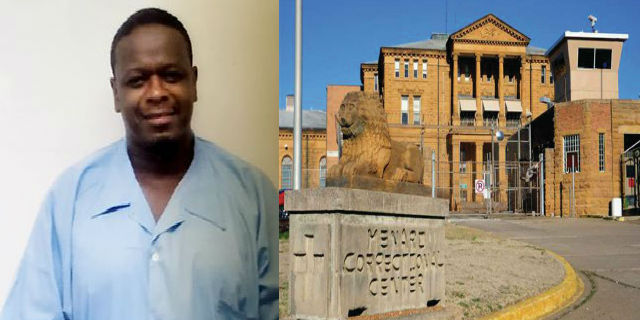
(Many of the facts contained in this article were derived from and are supported by the Appellate Brief of Larry Greer)
As in any criminal case, whether the process involves felony or misdemeanor crimes, the burden of proof always falls upon the prosecutor and the police officials who brought the criminal case before the courts. The law is suppose to deem all defendants innocent until proven guilty. I believe our justice system has proven countless times over, that the supposed perception of innocence perhaps, leaves much to be desired by those who find themselves standing before the courts in judgement with their lives in the balance.
Long before the gavel lands upon the courts final disposition of criminal cases, the people will have spoken in a trial where by the defendants were afforded a jury of their peers, and the entire process should have been an impartial adjudication governed by the laws of the respective jurisdiction for which the defendants have been tried. Those of us who hail from marginalized communities know all to well that such a process hasn’t exactly ever been fair to poor and indigenous people (of all races) within this country, who also know that the word of a police officer holds far more weight than any credible eyewitness a defendant could ever produce.
It wasn’t until the early 1990’s that the American public began to see the disparity and unfairness of policing in this country, when the shameful Rodney King beating case was unveiled for all to see, which depicted a culture of police violence that had long permeated our nation without scrutiny from the American public. Despite the emergence of surveillance footage of the incident being captured by a citizen, which clearly showed indisputable police brutality and excessive force, many of the officers involved were initially and shockingly acquitted of any wrong doing in the case.
Other high profile cases of police violence (excessive force), corruption, and police involved shootings of unarmed black men that have made national headlines, has placed bright lights and a microscope on police agencies around the country, which was born out of public fear, distrust, and the lack of transparency by police agencies when civilians come in contact with police officials. Also, depending upon the demographic of the communities that certain police agencies serve, the cops can do no wrong and often times a prosecutor in many of these jurisdictions can indict, prosecute, and convict a ham sandwich because the allegiance to the police is just that strong within certain sub-cultural settings in modern society.
“They harassed me so much that when ever they showed up at the door, I just started to asking them if they had a warrant, and when they said they didn’t, I just politely closed the door,” the source said.
Now in the instance case (People of Illinois vs. James Evans) over 20 years later, a mountain of information has been uncovered, with witnesses who are no longer afraid of alleged corrupt cops and the county prosecutor’s office, are now speaking up and helping formulate a classic horror story of injustice and showing exactly how ruthless, moralless, and lawless policing allegedly operated in some counties in the United States, such as Madison County Illinois during the early 1990’s.
Latosha White-Hamilton who was an alleged former co-defendant of James Evans, told TPC during a telephone interview that police officials and a prosecutor allegedly attempted to pressure her into making false statements that would implicate herself and Evans in a murder for hire conspiracy. White’s comments regarding police intimidation and coercion was not the first person who told TPC that former Alton Detective Bradley Wells, prosecutor Keith Jensen, and others used the same tactics to hold their personal criminal troubles against them, in an effort to pressure them into making false statements against James Evans.
One alleged defendant in the conspiracy to commit murder indictment, who understandably, doesn’t want to be mentioned on record, told a story which details how Detective Wells and former Detective John Lakin allegedly and repeatedly appeared at their residence harassing them to make false statements on record about Evans and a $10,000.00 murder for hire conspiracy they wanted them to falsely implicate Evans in. The story they (Wells and Lakin) allegedly wanted told was a complete fabrication, the source said. “They harassed me so much that when ever they showed up at the door, I just started asking them if they had a warrant, and when they said they didn’t, I just politely closed the door,” the source said. Then one day they in fact showed up at their residence with an actual arrest warrant which charged them with conspiracy to commit murder anyway. The source gave other statements also regarding the case, but those comments won’t be mentioned on record in fear that the information might compromise the sources identity which TPC has agreed not to disclose.
White and the unnamed source’s comments are not just intriguing because it relates to serious cases of violence and murder, its just that their individual perspectives contain similar details on how police and the county prosecutor’s office went about attempting to obtain damning statements against James Evans, and more importantly though, the comments made by them are not the only people who are now saying nearly the exact same thing. During the phone interview with White, she also pointed TPC in the direction of Mr. Larry Greer’s case, which prosecutors alleged was in fact connected to the Evans cases, and TPC has obtained a copy of Greer’s Appellate Briefing which petitions the courts to overturn his conviction in a murder case for which he received a 40 year sentence. Depending on who you believe, the brief outlines a disturbing tale where by Greer changes the comments he made to police so many times, that its disturbing and highly suspect the authorities even used his testimony during the Evans trial.
Also, when you read the Greer Appellate Brief you learn that Greer’s interaction with authorities were suspicious at the very least. It describes how Greer (an alleged known “crackhead”) gives a story pertaining to the murder of Brian Warr (an alleged co-defendant of James Evans in the Nekemar Pearson slaying) on September 12, 1998, and when the cops didn’t belief his version they initially charged him with obstructing justice, arrested him, and placed him in the county jail on those charges). Greer summonses the authorities back to the jail where he changes his statement, and implies that Evans might be involved buy saying that Warr and Evans were having problems, but didn’t identify Warr’s shooter even though he was seated right next to Warr in the vehicle when the shooting occurred. Then on October 7, 1998 Greer was arrested on a substance charge. He asked to speak to a detective Adams to whom he gave a third statement regarding the Warr killing.
During the interview with Adams Greer identifies a man name Robert Fletcher (a Crip Gang member) as the person who shot and killed Brian Warr, and admitted that he had not been truthful in his previous statements to police because he was “scared.” Following that interview with Adams, Larry Greer was released from custody. On October 29, 1998 Greer testified during Robert Fletcher’s indictment hearing while again identifying Fletcher as the person who shot and killed Warr. Greer went on to testify that Warr had a gun with a laser sight on it. The gun didn’t work but Warr (according to Greer) had been pointing it at Fletcher. Greer would later admit that he made up the story about the gun and the laser sight at Fletcher’s request in exchange for Fletcher posting his bond.
Greer wouldn’t speak to police officials pertaining to the Warr killing again until March 31, 1999 (detectives Simmons and Wells conducted the interview) after Greer allegedly received a threatening note from Fletcher. Greer, Simmons, and Wells would speak the very next day (April 1, 1999). Greer testified before the Grand Jury again later that same day, telling the same story about having lied about the gun and laser, but then stated that in 1996 Fletcher believed that James Evans had arranged to have Nekemar Pearson (Fletcher’s best friend) killed. Greer then proceeds to tell a story about Evans and Warr dealing drugs together, as Evans, Warr, Fletcher, and Greer go back and forth regarding who actually killed Pearson (Greer’s account). This is where the story becomes confusing. Fletcher allegedly tells Greer that he was offered $3000 dollars by Evans to kill Warr (a very interesting fact is, that while Greer’s alleged stories indicate that Evans and Warr sold drugs together, there was never a motive established regarding why Evans wanted Warr killed, and more importantly, it seemed to be a conflict of interest for Evans to want to hire a Crip gang member to kill any one, when the Crips were supposed to have allegedly had a hit out on Evans for the killing of Fletcher’s friend Nekemar Pearson) then there was the story that Evans gave Greer $5,000 and 4 1/2 ounces of crack cocaine to be used to pay Fletcher for the hit on Warr. The state would even produce a witness later (Jody Wesley, who was a convicted felon, who served time in federal prison, and was facing state charges at the time) who didn’t know Fletcher or Warr, but alleged that they both spoke to him at length at the county jail about the murder for hire plot on Warr. Wesley also alleged that Greer said that he was paid $1500 dollars to set up his best friend to be murdered, and that Fletcher was the person who carried it out. The brief highlights rambling details that go on and on, and really doesn’t make a lot of sense when you try to understand all of the moving parts. I won’t spoil the rest of the intricate details contained in the Larry Greer Appellate Brief, which makes good reading for a cop drama television show, except this is about the lives of real life people who allegedly went to prisoner based on very shady information allegedly fabricated and cooked up by police authorities.
Its also important to note that while Greer was simply seated in a car with Warr when he was allegedly killed by Robert Fletcher, the cops and the prosecutor’s office kept him under constant scrutiny over the Warr killing, eventually began pressuring him to falsely implicate James Evans, and it was like a cat and mouse game between Greer and the authorities. When ever he told the cops something they wanted to hear he was rewarded with his freedom, and when ever he refused, or didn’t give information that satisfactory supported the the version they wanted conveyed, he was punished with criminal charges (fact), but you’ll have to read his Appellate Brief to discover how that all played out in an extremely sickening diatribe of varying allegations contained in the Greer Appellate Brief.. (read the Larry Greer Appellate Brief in the link below)
Larry Greer Appellate Brief
“That’s their version. What they made up and wanted me to say when they held my freedom over my head, you know, and money and different things like that.”
–Larry Greer
Larry Greer would deny receiving $5000 dollars and 4 1/2 ounces of crack cocaine from James Evans. That story was created by detective Simmons and prosecutor Jensen (also corroborating allegations regarding the authorities attempting to pressure potential witnesses who were facing criminal charges of their own, into making false statements to implicate James Evans in crimes that were alleged by Ms. White and others). To highlight the irregularity and potential criminal actions taken by police authorities, when Greer testified during the Grand Jury and was released, he was paid the $1500 dollars that was used to post his bond on the obstruction of justice charges (essentially paying him for his testimony). Also, court documents based on testimony given, Greer had also been given $100 dollars in early October by a Captain Spaul and detective Bradley Wells (a gesture that was problematic and some say was done to help him feed his drug habit, and make him willing to go along with future false statements).
Larry Greer was once again arrested for a look alike substance charge from October of 1998 to February of 1999. Greer would again speak to detectives Simmons and Wells in March. At that time Detective Simmons instructed him to change his story to “this murder for hire plot that Jason Simmons orchestrated.”
Court documents indicate that Greer Stated: “He (Simmons) told me he wanted me to say that Raven (James Evans) paid me and Fletcher to have it done (Warr killing), and it ain’t what –nothing like that, and then he said, well, there’s going to be a lot of people in the near future that’s going to get on the band wagon and go along with this story. You might as well get on. I said I’m not innocent. I said this statement that I gave to the Alton Police was the true statement. It’s really what happened. He didn’t want the truth. He said innocent people go to jail all the time. That’s what he told me.”
Greer testified that he was arrested again in of June 1999 for unlawful possession of a weapon by a felon. While in custody on that charge Greer says he had a meeting with prosecutor Kieth Jensen during the first week of July at the Madison County jail. According to Greer Jensen attempted to persuade Greer into adopting the $10,000 dollar murder for hire plot, and when Greer told Jensen he would not go along with such a story the meeting abruptly ended. Greer remained in the county jail for over six months on the pistol charge. Crumbling under pressure, Greer sent word that he was prepared to admit his involvement in the Warr murder. “Yeah, I wrote a letter. They broke me down. They broke me,” Greer allegedly stated. He also allegedly said “okay I’m ready to do it y’all way.” Then another meeting was arranged, and Greer was promised that he would not be charged with murder.”
“We just want you to go along with this story because, you know, we want to get Raven (James Evans) — we’re trying to get Raven convicted on this,and we need you. The only way we’re going to get Raven tied in for this murder is we need you.”
— Prosecutor Keith Jensen, as alleged in court documents by Larry Greer
Then on January 18, 2000, Greer communicated to another detective (Golike) that the statement he made previously to authorities regarding the conversations he had with Fletcher prior to the Warr murder, and what happened on the night of the murder was not true. According to court documents once again, Greer admitted to authorities that he had not been truthful in previous statements, but while his recantations were continuously changing, they also suddenly began to remain on a consistent theme (the attempted coercion of testimony and false statements pressure from police and the prosecutor’s office). Court documents also demonstrate that Greer testified:
“No, it was — it was Keith Jensen and Jason Simmons’ story put together. Every time that — every time I gave them a story, they let me go. They wanted me to — then I’d get locked up again. They say, well, you want — you want to go, just give us a little bit more. Give — just make yourself a little bit more involved.We’re not going to charge you, but they would always say we’ve got enough evidence to charge you with murder right now, but we’re not. He’d say we are not going to charge you with murder. We just want this. We want this $10,000 dollar murder for hire story.”
–Larry Greer
On the very next day that Greer refused to testify to the story related to the $10,000 dollar murder for hire plot, at the trial of Robert Fletcher, that the state had allegedly pressured him to do, Greer was subsequently charged with murder in the killing of Brian Warr.
“My attorney Batemen then stated that Larry Greer had already signed up for the deal and told me to think about it. I replied that Larry was a ‘crackhead’ and would do and say anything to obtain drugs to get free to smoke some more, and that I was not going to lie for the state, and I wanted nothing to do with being a ‘lying snitch’. “
–Robert Fletcher
Something had change inside Larry Greer though. Some people who know him say they believe he grew a conscious after learning that the state wanted Evans eligible for the death penalty. Greer had been willing to change his story for the authorities it seems, on multiple occasions, and even implicating himself in a murder that the state never proved beyond a reasonable doubt that he was involved in. The state of course produced rebuttal witnesses denying that they ever tried to solicit the murder for hire plot to Greer, and if it wasn’t for the fact that a volume of other people had already said essentially what Greer stated about being pressured and coercion of testimony, he might simple have been dismissed as a basic “crackhead” as described by Robert Fletcher. Despite all of Greer’s recantations about crimes to the police, he still appears credible in a notarized affidavit composed on September 28, 2012, when you juxtapose the affidavit to his testimony contained in the Appellate brief, and when he admits that he couldn’t lie for the state anymore when considering the state was trying to make Evans eligible for the death penalty. (read the affidavit of Larry Greer in the link below)
Larry Greer Affidavit
There are those who will highlight Larry Greer’s consistent story retractions as a viable means to discredit his allegations against law enforcement officials ( most likely, those within sub-cultural groups who have traditionally supported police as a cultural practice), but his claims are an echoing perspective that has consistently dogged authorities involved in these serious crimes, and the list of people who say that they were coerced into telling untruths against people that officials wanted prosecuted (like James Evans), is continuously growing. The state even allegedly solicited the murder for hire plot to Robert Fletcher, according to Fletcher’s own affidavit, which was composed on June 3, 2002. In the document Fletcher claims that he was offered leniency for an actual murder, that all indications suggest he did commit, if he would just testify to James Evans being the mastermind to all of the murders surrounding the related cases. (read the affidavit of Robert Fletcher in the link below)
Robert Fletcher Affidavit
Why such visceral hatred for Evans though? To add true and proper discernment to even began rationalizing what court documents obviously depict, nothing short of a potential witch hunt by law enforcement for one man, the premise for the alleged malicious pursuit of James Evans must be resolved. Prior to his arrest, indictment and subsequent convictions, Evans had no previous history of violent crime (one drug charge that was eventual dismissed). His reputation of allegedly being a “drug dealer” that I have mentioned from the onset of shedding light on this story, might be the source of the alleged pursual coveting of one man, that is completely obsessive, even for an alleged despised drug dealer, as the crime of drug solicitation is entirely different from a murder case.
The stories surrounding Bradley Wells having a picture of James Evan’s family on his desk in his office might also shed some light on perhaps, a deep perverse sickness, obsession of capturing an unjustly targeted suspect, or a contempt of cop mindset, which some studies related to policing indicate, is typically developed by some police who deem recidivist (re[p]eat criminal defendants) as a measure of disrespect, ultimately resulting in the defendant being arrested or charged with hyper policing tactics, to get them off the street once and for all regardless if sufficient evidence exist to prove criminal activity, and by any means necessary. Whether its “contempt of cop,” corruption, or that they just simply didn’t like Evans, it isn’t the type of policing conducive for any community, any society, any civilization, and it certainly isn’t justice when law enforcement can function in this manner to maliciously send citizens to prison for decades for crimes in which they haven’t committed.
Could any of this that’s now being revealed through court documents possibly be true? Then again of course, there is still the issue of the three (3) court orders, that still hasn’t produced those tapes.
To Be Continued In A Series…
The Peop;e’s Champion
I’m Crime Blogger David Adams
0
A Self proclaimed geek, Sympathizer for the homeless, Social Change Advocate, Crime Blogger, Promoter of Awareness for Missing and Exploited Children, and a mobile technology enthusiast. A recognized Journalist and Human Interest Writer championing the plight of the masses whom are without a voice of their own.
More Posts - Website
Follow Me:




You can
leave a response, or
trackback from your own site.

 RSS Feed
RSS Feed Twitter
Twitter




 Posted in
Posted in 